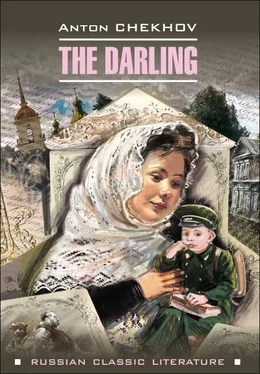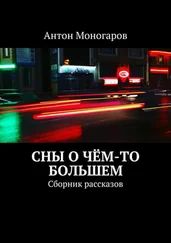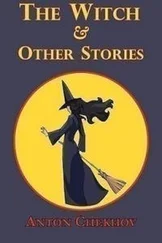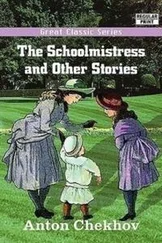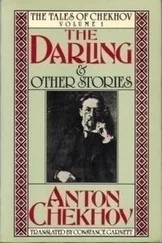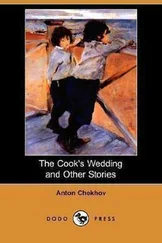Антон Чехов - The darling / Душечка. Сборник рассказов
Здесь есть возможность читать онлайн «Антон Чехов - The darling / Душечка. Сборник рассказов» — ознакомительный отрывок электронной книги совершенно бесплатно, а после прочтения отрывка купить полную версию. В некоторых случаях можно слушать аудио, скачать через торрент в формате fb2 и присутствует краткое содержание. Год выпуска: 2019, ISBN: 2019, Издательство: Литагент Каро, Жанр: Классическая проза, Русская классическая проза, Прочая научная литература, на английском языке. Описание произведения, (предисловие) а так же отзывы посетителей доступны на портале библиотеки ЛибКат.
- Название:The darling / Душечка. Сборник рассказов
- Автор:
- Издательство:Литагент Каро
- Жанр:
- Год:2019
- ISBN:978-5-9925-1149-9
- Рейтинг книги:5 / 5. Голосов: 1
-
Избранное:Добавить в избранное
- Отзывы:
-
Ваша оценка:
- 100
- 1
- 2
- 3
- 4
- 5
The darling / Душечка. Сборник рассказов: краткое содержание, описание и аннотация
Предлагаем к чтению аннотацию, описание, краткое содержание или предисловие (зависит от того, что написал сам автор книги «The darling / Душечка. Сборник рассказов»). Если вы не нашли необходимую информацию о книге — напишите в комментариях, мы постараемся отыскать её.
The darling / Душечка. Сборник рассказов — читать онлайн ознакомительный отрывок
Ниже представлен текст книги, разбитый по страницам. Система сохранения места последней прочитанной страницы, позволяет с удобством читать онлайн бесплатно книгу «The darling / Душечка. Сборник рассказов», без необходимости каждый раз заново искать на чём Вы остановились. Поставьте закладку, и сможете в любой момент перейти на страницу, на которой закончили чтение.
Интервал:
Закладка:
“You despise me, and if only you knew how miserable it makes me,” she said uncertainly, knowing beforehand that he would not believe her. “And if you only knew how I want to change, to begin another life! I think of it with enthusiasm!” and tears of enthusiasm actually came into her eyes. “To be good, honest, pure, not to be lying; to have an aim in life.”
“Come, come, come, please don’t be affected! I don’t like it!” said Volodya, and an ill-humoured expression came into his face. “Upon my word, you might be on the stage. Let us behave like simple people.”
To prevent him from getting cross and going away, she began defending herself, and forced herself to smile to please him; and again she began talking of Olga, and of how she longed to solve the problem of her life and to become something real.
“Ta-ra-ra-boomdee-ay,” he hummed. “Ta-ra-ra-boom-dee-ay!”
And all at once he put his arm round her waist, while she, without knowing what she was doing, laid her hands on his shoulders and for a minute gazed with ecstasy, almost intoxication, at his clever, ironical face, his brow, his eyes, his handsome beard.
“You have known that I have loved you for ever so long,” she confessed to him, and she blushed painfully, and felt that her lips were twitching with shame. “I love you. Why do you torture me?”
She shut her eyes and kissed him passionately on the lips, and for a long while, a full minute, could not take her lips away, though she knew it was unseemly, that he might be thinking the worse of her, that a servant might come in.
“Oh, how you torture me!” she repeated.
When half an hour later, having got all that he wanted, he was sitting at lunch in the dining-room, she was kneeling before him, gazing greedily into his face, and he told her that she was like a little dog waiting for a bit of ham to be thrown to it. Then he sat her on his knee, and dancing her up and down like a child, hummed:
“Tara-raboom-dee-ay … Tara-raboom-dee-ay.” And when he was getting ready to go she asked him in a passionate whisper:
“When? To-day? Where?” And held out both hands to his mouth as though she wanted to seize his answer in them.
“To-day it will hardly be convenient,” he said after a minute’s thought. “To-morrow, perhaps.”
And they parted. Before dinner Sofya Lvovna went to the nunnery to see Olga, but there she was told that Olga was reading the psalter somewhere over the dead. From the nunnery she went to her father’s and found that he, too, was out. Then she took another sledge and drove aimlessly about the streets till evening. And for some reason she kept thinking of the aunt whose eyes were red with crying, and who could find no peace anywhere.
And at night they drove out again with three horses to a restaurant out of town and listened to the gipsies. And driving back past the nunnery again, Sofya Lvovna thought of Olga, and she felt aghast at the thought that for the girls and women of her class there was no solution but to go on driving about and telling lies, or going into a nunnery to mortify flesh … And next day she met her lover, and again Sofya Lvovna drove about the town alone in a hired sledge thinking about her aunt.
A week later Volodya threw her over. And after that life went on as before, uninteresting, miserable, and sometimes even agonising. The Colonel and Volodya spent hours playing billiards and picquet, Rita told anecdotes in the same languid, tasteless way, and Sofya Lvovna went about alone in hired sledges and kept begging her husband to take her for a good drive with three horses.
Going almost every day to the nunnery, she wearied Olga, complaining of her unbearable misery, weeping, and feeling as she did so that she brought with her into the cell something impure, pitiful, shabby. And Olga repeated to her mechanically as though a lesson learnt by rote, that all this was of no consequence, that it would all pass and God would forgive her.
THE TROUSSEAU 30 30 Trousseau – ( French ) the dowry
I have seen a great many houses in my time, little and big, new and old, built of stone and of wood, but of one house I have kept a very vivid memory. It was, properly speaking, rather a cottage than a house – a tiny cottage of one story, with three windows, looking extraordinarily like a little old hunchback woman with a cap on. Its white stucco walls, its tiled roof, and dilapidated chimney, were all drowned in a perfect sea of green. The cottage was lost to sight among the mulberry-trees, acacias, and poplars planted by the grandfathers and great-grandfathers of its present occupants. And yet it is a town house. Its wide courtyard stands in a row with other similar green courtyards, and forms part of a street. Nothing ever drives down that street, and very few persons are ever seen walking through it.
The shutters of the little house are always closed; its occupants do not care for sunlight – the light is no use to them. The windows are never opened, for they are not fond of fresh air. People who spend their lives in the midst of acacias, mulberries, and nettles have no passion for nature. It is only to the summer residents that God has vouchsafed an eye for the beauties of nature. The rest of mankind remain steeped in profound ignorance of the existence of such beauties. People never prize what they have always had in abundance. “What we have, we do not treasure,” and what’s more we do not even love it.
The little house stands in an earthly paradise of green trees with happy birds nesting in them. But inside … alas … ! In summer, it is close and stifling within; in winter, hot as a Turkish bath, not one breath of air, and the dreariness! …
The first time I visited the little house was many years ago, on business. I brought a message from the Colonel who was the owner of the house to his wife and daughter. That first visit I remember very distinctly. It would be impossible indeed to forget it.
Imagine a limp little woman of forty, gazing at you with alarm and astonishment while you walk from the passage into the parlour. You are a stranger, a visitor, “a young man”; that’s enough to reduce her to a state of terror and bewilderment. Though you have no dagger, axe, or revolver in your hand, and though you smile affably, you are met with alarm.
“Whom have I the honour and pleasure of addressing?” the little lady asks in a trembling voice.
I introduced myself and explained why I had come. The alarm and amazement were at once succeeded by a shrill, joyful “Ach!” and she turned her eyes upwards to the ceiling. This “Ach!” was caught up like an echo and repeated from the hall to the parlour, from the parlour to the kitchen, and so on down to the cellar. Soon the whole house was resounding with “Ach!” in various voices.
Five minutes later I was sitting on a big, soft, warm lounge in the drawing-room listening to the “Ach!” echoing all down the street. There was a smell of moth powder, and of goatskin shoes, a pair of which lay on a chair beside me wrapped in a handkerchief. In the windows were geraniums, and muslin curtains, and on the curtains were torpid flies. On the wall hung the portrait of some bishop, painted in oils, with the glass broken at one corner, and next to the bishop a row of ancestors with lemon-coloured faces of a gipsy type. On the table lay a thimble, a reel of cotton, and a half-knitted stocking, and paper patterns and a black blouse, tacked together, were lying on the floor. In the next room two alarmed and fluttered old women were hurriedly picking up similar patterns and pieces of tailor’s chalk from the floor.
“You must please excuse us; we are dreadfully untidy,” said the little lady.
While she talked to me, she stole embarrassed glances towards the other room where the patterns were still being picked up. The door, too, seemed embarrassed, opening an inch or two and then shutting again.
Читать дальшеИнтервал:
Закладка:
Похожие книги на «The darling / Душечка. Сборник рассказов»
Представляем Вашему вниманию похожие книги на «The darling / Душечка. Сборник рассказов» списком для выбора. Мы отобрали схожую по названию и смыслу литературу в надежде предоставить читателям больше вариантов отыскать новые, интересные, ещё непрочитанные произведения.
Обсуждение, отзывы о книге «The darling / Душечка. Сборник рассказов» и просто собственные мнения читателей. Оставьте ваши комментарии, напишите, что Вы думаете о произведении, его смысле или главных героях. Укажите что конкретно понравилось, а что нет, и почему Вы так считаете.
